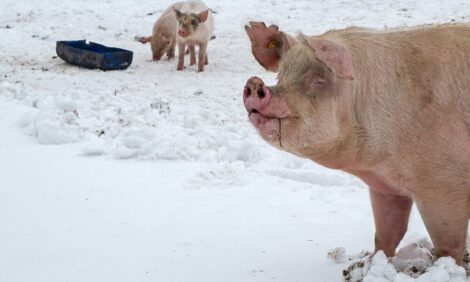



Farmer Concerns in Animal Health and Welfare Bill
IRELAND - Irish Farmers' Association (IFA) Animal Health Chairman John Waters said the Minister for Agriculture Simon Coveney will have to introduce significant changes to the New Animal Health and Welfare Bill when it returns to the Dail in late September. Mr Waters said IFA are disappointed that the Bill had passed through all stages in the Seanad without taking on board a number of key concerns of farmers.Mr Waters said the Animal Health and Welfare Bill involves a series of new proposals and measures which could have far reaching consequences for farmers and the agriculture sector. He said “It must be recognised in the Bill that farmers operate to the highest animal welfare standards and are already heavily regulated by the Department of Agriculture, Food and the Marine.“
The IFA Animal Health leader said it is vitally important that Minister Coveney ensures that the new Bill does not impose any unnecessary or additional costs or bureaucracy on farmers. In addition, the Minister must ensure that the bill does not put the productive Irish agricultural sector and exports at a competitive disadvantage. He said the Bill has a provision for new and additional animal health levies and this is not necessary.
IFA has put forward a total of 84 different amendments on the bill and has written to the Minister outlining the very real concerns of farmers across a whole range of issues.
Farmers are extremely concerned with the provisions in the bill regarding the appointment of authorised officers and the powers of such officers. The bill provides for the appointment of authorised officers, which may be delegated to a third party, such as a welfare organisation or other bodies. These officers will have wide-ranging powers including power to seize animals and issue on the spot fines of up to €1000 based on “reasonable grounds for believing“ and without having to produce evidence.
Mr Waters said such a delegation of powers is totally unacceptable because it could mean a privatisation of inspections and an abdication of accountability, which would no longer rest with public servants and Ministerial accountability. In addition it is turning the law on its head as it is removing the basic legal right of the presumption of innocence.
Farmers are also concerned with the provision in the bill for the Minister to introduce codes of practice in the animal welfare area and how these codes could be used against farmers. The current codes, formulated by FAWAC (Farm Animal Welfare Advisory Council) are voluntary codes and were never intended to be interpreted legally. FAWAC has already outlined this position to the Department.
Other proposals in the bill will require significant changes and clarification as they cannot impinge on standard farm practices such as dehorning, disbudding, castration and tail docking.
Farmers strongly objected to the very significant change in the proposed bill to remove the obligation on the Minister to pay compensation under the current Disease of Animals Act where animals are compulsorily removed for disease or other purposes. In addition, compensation cannot be limited to the food producing capacity of the animal. All other factors including the genetic merit of an animal must be taken into account when determining market value.






